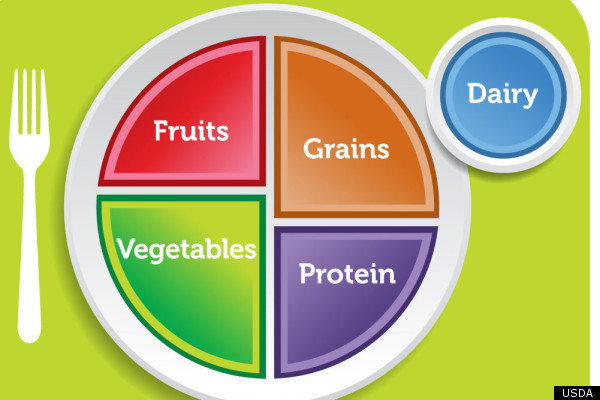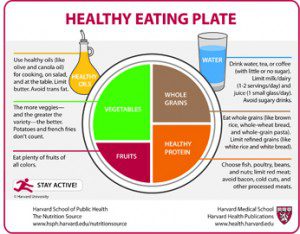What is so bad about Default / USDA macros?
Replies
-
bump for later0
-
Insulin drives fat. Carbs drive insulin. How well your body uptakes insulin will determine how many carbs your body can process before you either have to a)burn the excess or b) store the excess glucose as fat. That's why some people (like me) have to eat low carb, and others can get away with more. Low carb is not a fad for a lot of people, for some of us with metabolic syndrome, diabetes, insulin resistance, etc, it is a prescription. If you can handle carbs, good for you!
ETA: agreed that the given protein amount is very low. I eat 1 gram per pound of lean mass.
Hmmmm why would you recommend eating more protein, when protein is highly insulinogenic? Insulin drives fat, right?
You know why... dat der regurgitation of information without fully understanding what is being said .
Mock me all you want, I don't care. I'm sure you also know that while protein is insulinogenic (whey protein being the most), they don't spike blood sugar, and it also triggers the release of glucagon to facilitate absorption of amino acids, which carb rich foods do not. My point is that adequate protein intake, seems to support my lean mass, and provides my body with a way to store glucose for future needs without having to give up a ketogenic state or cause an increase in blood sugar.
If I had a gif of that 70's show clip when Hyde's sister is learning how to do burns and finally gets it, and then asks Hyde if it was a burn while putting her arms up to celebrate... I would use that now.
ETA: but then again, I think it's also something I need to learn.... lol...0 -
They're useful if you are
a) eating a maintenance level diet and
b) are a healthy individual without any metabolic dysregulation
How many people would that be on MFP?
About 10 in total.....0 -
I hear so many say the default macros (USDA) are bunk. They seem to work for me, but everyone seems to think they don't have the optimal ratio. Also if the USDA macros are bunk, can you list other countries who's health and agricultural services actually claim you need different ratios?
well it depends exactly what you are referring to. The USDA also has a "food plate" which is fairly good for a "normal" person or at least on the right track
the old way of grains...ie carbs being the center of your diet is what most people had an issue with that. WHy would a diet be centered around something you don't need to eat?
they also have a version of the "plate" like this:
I don't like that quite as much. I never understand why dairy is a must. The plate doesn't look bad to me though.
At the end of the day the focus seemed to be on grains and dairy...why? That part always confused me. I didn't have that pissed off feeling many had it just didn't make sense to me.0 -
I hear so many say the default macros (USDA) are bunk. They seem to work for me, but everyone seems to think they don't have the optimal ratio. Also if the USDA macros are bunk, can you list other countries who's health and agricultural services actually claim you need different ratios?
well it depends exactly what you are referring to. The USDA also has a "food plate" which is fairly good for a "normal" person or at least on the right track
the old way of grains...ie carbs being the center of your diet is what most people had an issue with that. WHy would a diet be centered around something you don't need to eat?
I don't like that quite as much. I never understand why dairy is a must. The plate doesn't look bad to me though.
At the end of the day the focus seemed to be on grains and dairy...why? That part always confused me. I didn't have that pissed off feeling many had it just didn't make sense to me.
Because dairy and grains are awesome! They are both pretty nutrient dense, super-yummy, and versatile, encompassing a wide range of food potentials.0 -
Default macros are designed for people who don't have health conditions that call for something else. This site is aimed at and likely to be used primarily by overweight/obese folks who as a group have higher rates of insulin resistance and type 2 diabetes, which means higher rates of being told to count carbohydrates. Add to that the smattering of low-carb fad diets aimed at people for the sake of weight loss, and this is what happens.0
-
The problem I have with the "plate" is that it includes no fat! Sure, some dairy or protein have fat, but not all - say you're eating chicken breast for your protein, and drinking 1% milk... then your diet includes pretty much zero fat. I think fat is a really important macro for a variety of reasons, so it bothers me that our government is still advocating for a low-fat diet. I thought the whole "low-fat" concept died out in the 1980s.0
-
Mock me all you want, I don't care. I'm sure you also know that while protein is insulinogenic (whey protein being the most), they don't spike blood sugar, and it also triggers the release of glucagon to facilitate absorption of amino acids, which carb rich foods do not. My point is that adequate protein intake, seems to support my lean mass, and provides my body with a way to store glucose for future needs without having to give up a ketogenic state or cause an increase in blood sugar.
Some people on this forum have a tendency to do that when they disagree with you, but you are exactly right. In my opinion, most of us do not get nearly enough protein and eat an over abundance of carbs. I don't think the USDA Macronutrient recommendation are quite on point with how we should actually be eating. I think Protein should definitely be higher and I don't think most eat nearly enough vegetables as they should. Doesn't mean cut out the carbs, but it might help to reduce the carbs slightly and increase the protein. Obviously choosing whole grains and more nutrient dense carb sources as opposed to refined and processed. I also personally prefer foods lower on the glycemic index. Instead of white rice I prefer better option like Yams and Quinoa(also high in protein).0 -
The problem I have with the "plate" is that it includes no fat! Sure, some dairy or protein have fat, but not all - say you're eating chicken breast for your protein, and drinking 1% milk... then your diet includes pretty much zero fat. I think fat is a really important macro for a variety of reasons, so it bothers me that our government is still advocating for a low-fat diet. I thought the whole "low-fat" concept died out in the 1980s.
This is the new Harvard rendition, I like that it includes healthy fats, but still think the recommended carb intake is a bit too high especially if you take into account the sedentary lifestyle most people lead. (haven't quite figured out how to put it in picture format
 0
0 -
The problem I have with the "plate" is that it includes no fat! Sure, some dairy or protein have fat, but not all - say you're eating chicken breast for your protein, and drinking 1% milk... then your diet includes pretty much zero fat. I think fat is a really important macro for a variety of reasons, so it bothers me that our government is still advocating for a low-fat diet. I thought the whole "low-fat" concept died out in the 1980s.
This is the new Harvard rendition, I like that it includes healthy fats, but still think the recommended carb intake is a bit too high especially if you take into account the sedentary lifestyle most people lead.
[img src="http://www.hsph.harvard.edu/nutritionsource/files/2013/04/HEPApr2013.jpg"][/img]
Ah yes, I do like that one better. But I agree that carbs are still a bit high - based on that photo, it looks like carbs would make up for around 70% of the diet. I don't see why anyone would need more than around 50% carbs, personally. Maybe 60% if they're very active. And for the sedentary person, as you mentioned, that many carbs are certainly not necessary.0 -
Grain's aren't nutrient dense compared to vegetables and they are completely unnecessary. Why not say something like 'starchy vegetable or grain'. If you look at the plate, you could easily have 1. some kind of protein, maybe even beans which are high carb, because they don't say meat, 2. fruit (high carb), 3. grains (obviously carby), and 4. Veggies which could be high or lower carb veg. Plus dairy, which has sugar. Nothing wrong with those things individually but you could easily have a meal that's mostly carbs. I don't see that as balanced, personally.Because dairy and grains are awesome! They are both pretty nutrient dense
My plate would be meat, leafy vegetable, starchy vegetable or grain like rice. Plus cheese, oils/fats, or fruit.
I also think the dairy looks like it should be a glass of milk and there is no way we need a glass of milk at every meal. If you want one fine, but we don't need it enough to give it's own spot.0 -
Insulin drives fat. Carbs drive insulin. How well your body uptakes insulin will determine how many carbs your body can process before you either have to a)burn the excess or b) store the excess glucose as fat. That's why some people (like me) have to eat low carb, and others can get away with more. Low carb is not a fad for a lot of people, for some of us with metabolic syndrome, diabetes, insulin resistance, etc, it is a prescription. If you can handle carbs, good for you!
ETA: agreed that the given protein amount is very low. I eat 1 gram per pound of lean mass.
Hmmmm why would you recommend eating more protein, when protein is highly insulinogenic? Insulin drives fat, right?
You know why... dat der regurgitation of information without fully understanding what is being said .
Mock me all you want, I don't care. I'm sure you also know that while protein is insulinogenic (whey protein being the most), they don't spike blood sugar, and it also triggers the release of glucagon to facilitate absorption of amino acids, which carb rich foods do not. My point is that adequate protein intake, seems to support my lean mass, and provides my body with a way to store glucose for future needs without having to give up a ketogenic state or cause an increase in blood sugar.
Say WHAT now?....I'm all ears :laugh: I'm looking forward to a re-check on bloodwork in a couple of weeks & if kidney function checks out ok, I'm looking to increase my protein intake. I've had unexplained variable results with my weight training lately that suggests I would benefit from additional protein but like yourself, I worry about losing ground.
According to my meter, it took me about 2 wks to recover from a 4 day once daily 'dietary indiscretion'. Timing was off & missed the spike, only seeing the low that followed...Ooops.
ETA: duh I got so excited about the prospect of additional protein without the spike that I forgot to ask what you recommend in the way of protein source that would likely not produce BG spike0 -
I think, generally, different people have different needs. With a little research and trial and error, you can find what works best for you.
If you're someone who works out a great deal, does lots of aerobics, has a high general level of physical activity every day, yes, you need more carbs for top workout performance. You will need more carbs than a person who is working 8-10 hours in an office at a desk everyday and who isn't burning off glycogen stores as often or as consistently.
If you're lean and trying to actively gain lean muscle mass, your body has different needs than a person who is clinically obese (and if you're obese it practically goes without saying that you have or are in the process toward developing underlying insulin resistance and metabolic syndrome. These things are interdependent and related). And, if you're insulin resistant, it absolutely makes sense to cut back on highly insulinogenic foods such as refined carbs and high GI foods.
We have a tendency to think in very binary terms. Either something is good or it's bad when really it's a spectrum. We all fall somewhere on the spectrum, but sometimes there are significant differences between individuals.
Take stock of your own needs, do a little research, try a few things, and gage what works best for you.0 -
My doctor recently put me on a low-carb diet to help with liver issues. After 6 days I was in the ER severely dehydrated, almost in kidney failure. Carbs are friends... Needless to say, I'll be getting a new GI. I have the macros set to what he wanted me to eat and I'd like to set them back to the default settings. I can't seem to find them. What are they?0
-
Bump for the info everyone else is sharing, but try playing around with your macros before deciding what works best for you. At the very least you already know this works well and if nothing else does you can come back to it.
Try dropping your carb level and increasing fats/ protein equally and see how that makes me feel. I thought the guidelines were alright for me until I did this- and I found some new energy stores. Found out I'm very slightly gluten intolerant - not enough that it affects me in any way other than making me tired (more so than the "regular" carb crash). I thought it was because I wasn't getting enough sleep but cutting carbs made a big difference. If that does nothing then up your protein (level up carbs and fats) and do it again with increased fats.
For other people they find they stay more full with higher protein or higher fats. I haven't noticed this for myself but others swear by it. It's great to have something work right off the bat, but some trial and error will help in any case. You can either find something better, or know with certainty that this is best for you.0 -
My doctor recently put me on a low-carb diet to help with liver issues. After 6 days I was in the ER severely dehydrated, almost in kidney failure. Carbs are friends... Needless to say, I'll be getting a new GI. I have the macros set to what he wanted me to eat and I'd like to set them back to the default settings. I can't seem to find them. What are they?
My Home, Goals, Change Goals. You can either go back to default or change to new settings again.0 -
I hear so many say the default macros (USDA) are bunk. They seem to work for me, but everyone seems to think they don't have the optimal ratio. Also if the USDA macros are bunk, can you list other countries who's health and agricultural services actually claim you need different ratios?
I think the USDA macros are fine, although different percentage breakdowns are also fine and may be better when one is in a calorie deficit, since the USDA percentage is of total calories assuming no deficit.
What I think people don't get is that the default MFP recommendations--which are within the USDA recommendation but don't reflect the fact that there's a range or that most people will be at a deficit--aren't some kind of magic formula that is the best for everyone. Instead, I think people should experiment and do what works best for them, as long as it's somewhat balanced (although I think low carbing also works well for some, though it's not what I do). So sure eating the default macros can be a balanced diet, but other breakdowns may be more optimal for individuals and also balanced.
One criticism I have of the MFP/USDA breakdown relates to the combination of the protein percentage and the 1200 calorie goal that lots of people get. 20% of a normal maintenance diet gives most people plenty of protein. 20% of 1200 calories may not be for a lot of people, if you just look at the number of grams that is and that people dieting are at risk of losing muscle mass. Personally, then, I like a higher protein and fat percentage (30% each) than the default and a lower carb percentage (40%, so hardly low carb) when eating at my lowest goal number. It also tends to make me feel more satiated than when I eat a higher percentage of carbs. When I get more calories from exercise I don't worry so much about the macro breakdown for the extra calories, since I've eaten the protein and fat grams I want to and that determined my initial goal, and thus usually tend to add in a higher percentage of carbs.0 -
The problem is actually not the protein (usually). The medical recommendation is .8g/kg (as a minimum) and 20% of 1200 calories means 60g which is fine up to 75 kgs (~165 lbs).
The real problem is that the recommended minimum for fat is .35g/lb and 30% of 1200 calories means 40g. That becomes insufficient for anyone over 52 kgs (115 lbs), and insufficient fat is actually worse than insufficient protein.
ETA:
For a more reasonable 1800 calorie goal, 20% and 30% can be fine up to 78 kgs.0 -
^Like I said, the criticism mainly comes from low carb fad dieters who think carbs are the root of all evil.
Yes, and like I said,
When you're done with all of that, you will have a good foundation to then make a rational choice for yourself. :drinker:
DIdn't seem to work for you.
:drinker:0 -
^Like I said, the criticism mainly comes from low carb fad dieters who think carbs are the root of all evil.
Yes, and like I said,
When you're done with all of that, you will have a good foundation to then make a rational choice for yourself. :drinker:
[/quote
Didn't seem to work for you.
:drinker:0
This discussion has been closed.
Categories
- All Categories
- 1.4M Health, Wellness and Goals
- 398.4K Introduce Yourself
- 44.7K Getting Started
- 261K Health and Weight Loss
- 176.4K Food and Nutrition
- 47.7K Recipes
- 233K Fitness and Exercise
- 462 Sleep, Mindfulness and Overall Wellness
- 6.5K Goal: Maintaining Weight
- 8.7K Goal: Gaining Weight and Body Building
- 153.5K Motivation and Support
- 8.4K Challenges
- 1.4K Debate Club
- 96.5K Chit-Chat
- 2.6K Fun and Games
- 4.8K MyFitnessPal Information
- 17 News and Announcements
- 21 MyFitnessPal Academy
- 1.5K Feature Suggestions and Ideas
- 3.2K MyFitnessPal Tech Support Questions














